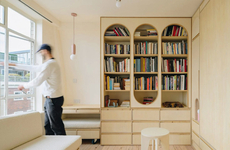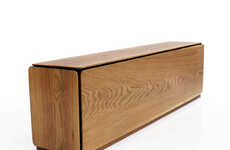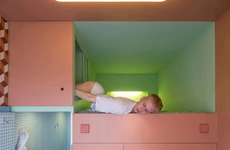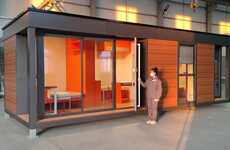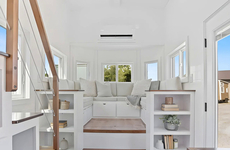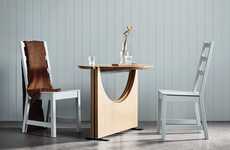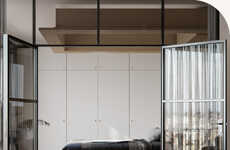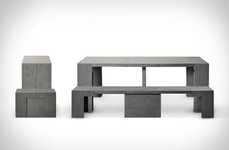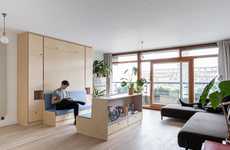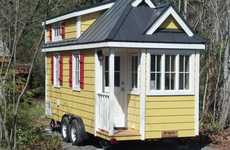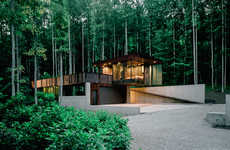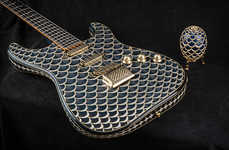
This Tiny House Stores The Dining Table in the Floor and Bed in the Roof
References: lifeedited & treehugger
This super cozy 430 square foot tiny house called 'YO! Home' is designed with all the necessary rooms and functions. The rooms are just stored within the walls, floors and ceiling of this tiny home.
The architecturally beautiful home features a dining room table that is actually part of the floor. When the table is required it can simply be pulled up to become a fully functional eating area and can be put back when it's not needed. A similar tactic was used for the bed, which is stored in the ceiling. When it's time to sleep, the bed is lowered onto the living room area.
Both the bed and the table of this home are averagely sized. They are simply stored in unique ways to save time and space.
The architecturally beautiful home features a dining room table that is actually part of the floor. When the table is required it can simply be pulled up to become a fully functional eating area and can be put back when it's not needed. A similar tactic was used for the bed, which is stored in the ceiling. When it's time to sleep, the bed is lowered onto the living room area.
Both the bed and the table of this home are averagely sized. They are simply stored in unique ways to save time and space.
Trend Themes
1. Hidden Storage - The use of hidden storage within the walls, floors, and ceilings of tiny houses presents disruptive innovation opportunities for furniture and interior design companies.
2. Transformable Furniture - The development of furniture that can easily transform or be stored away, like a dining table that becomes part of the floor, provides disruptive innovation opportunities for the furniture industry.
3. Space-saving Solutions - The creation of space-saving solutions, such as storing beds in ceilings, opens up disruptive innovation opportunities for the architecture and construction industries.
Industry Implications
1. Furniture - The furniture industry can explore innovative ways to design and manufacture transformable furniture that maximizes space efficiency in small living environments.
2. Interior Design - Interior design companies can incorporate hidden storage solutions into their designs to optimize space utilization in small homes and apartments.
3. Architecture and Construction - The architecture and construction industries can embrace space-saving solutions, like incorporating hidden storage and retractable elements, to create innovative and efficient living spaces.
6.8
Score
Popularity
Activity
Freshness

